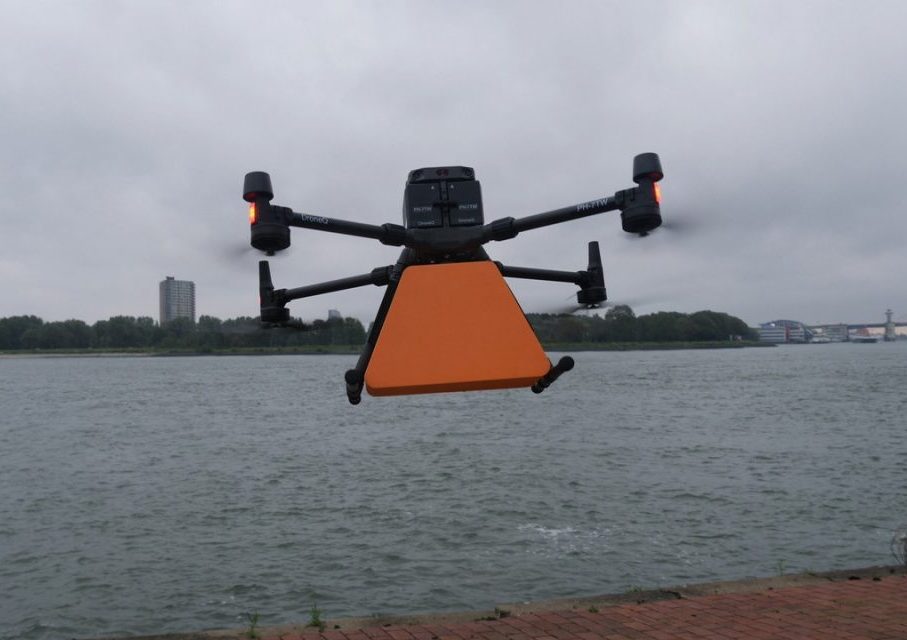The Dutch Drone Delta has carried out a pilot in which a package was delivered by means of a drone to the inland container ship Duancis. At the time of delivery, the Duancis was sailing at normal speed near the island of Brienenoord. It is the second part of a series of pilots with delivery drones in the port of Rotterdam.
Earlier this year, a package was delivered by drone to the offshore ship the Pioneering Spirit, moored in the Alexiahaven at the Maasvlakte. The aim of the flights is to see if and how drone delivery can contribute to even greater efficiency and an easy and customer-friendly transit of ships in the port of Rotterdam.
Drones are developing rapidly. New European regulations pave the way for new applications, including ultimately autonomous unmanned freight and passenger transport. To this end, airspace and drone technology will be prepared in stages in the coming years. These delivery flights are an important first step; a real package will be delivered and the drone will cover a large distance. Now with observers, but in the future completely out of the pilot’s sight. In order to facilitate safe and efficient drone flights out of the pilot’s sight, a reliable mobile network at flight level is required. KPN was involved in this flight and carried out the necessary network measurements.
Drones for inland navigation
An inland waterway vessel is sometimes only in port for a short period of time and does not always have time to drop the car off to pick up things. Ordering items online and having them delivered per drone, for example spare parts, can then save a lot of time.
If part of all transport in the port is carried out by drones, this can give a considerably quieter environment, as drones are electrically powered. But of course, drones are not completely silent. That is why the Dutch Drone Delta is also investigating whether it would be desirable to keep certain distances from homes and how large that distance should be.
These kinds of tests also provide initial answers to important questions from providers of drone services; which routes should be developed, how much weight should the drone be able to carry and how does drone transport fit into the logistics chain?
Dutch Drone Delta
Dutch Drone Delta is a coalition of Dutch parties that combine knowledge and skills to realise drone applications for large-scale transport and transportation (Urban Air Mobility, UAM) in the Netherlands. As of January 2020, the consortium is working on the essential requirements for a successful application of drones and Urban Air Mobility in our society, including social acceptance and safe cooperation with other airspace users. By using drones for medical transport, security, inspections of our infrastructure and the transport of cargo and people by air, drones will be of added value to society.
Partners are KLM, Air Traffic Control the Netherlands (LVNL), Royal Schiphol Group, Port of Rotterdam, KPN, insurance company a.s.r., Antea Group, Space53, and Koninklijke NLR. There is close cooperation with the Ministry of Infrastructure & Water Management and the Directorate-General for Public Works and Water Management.








